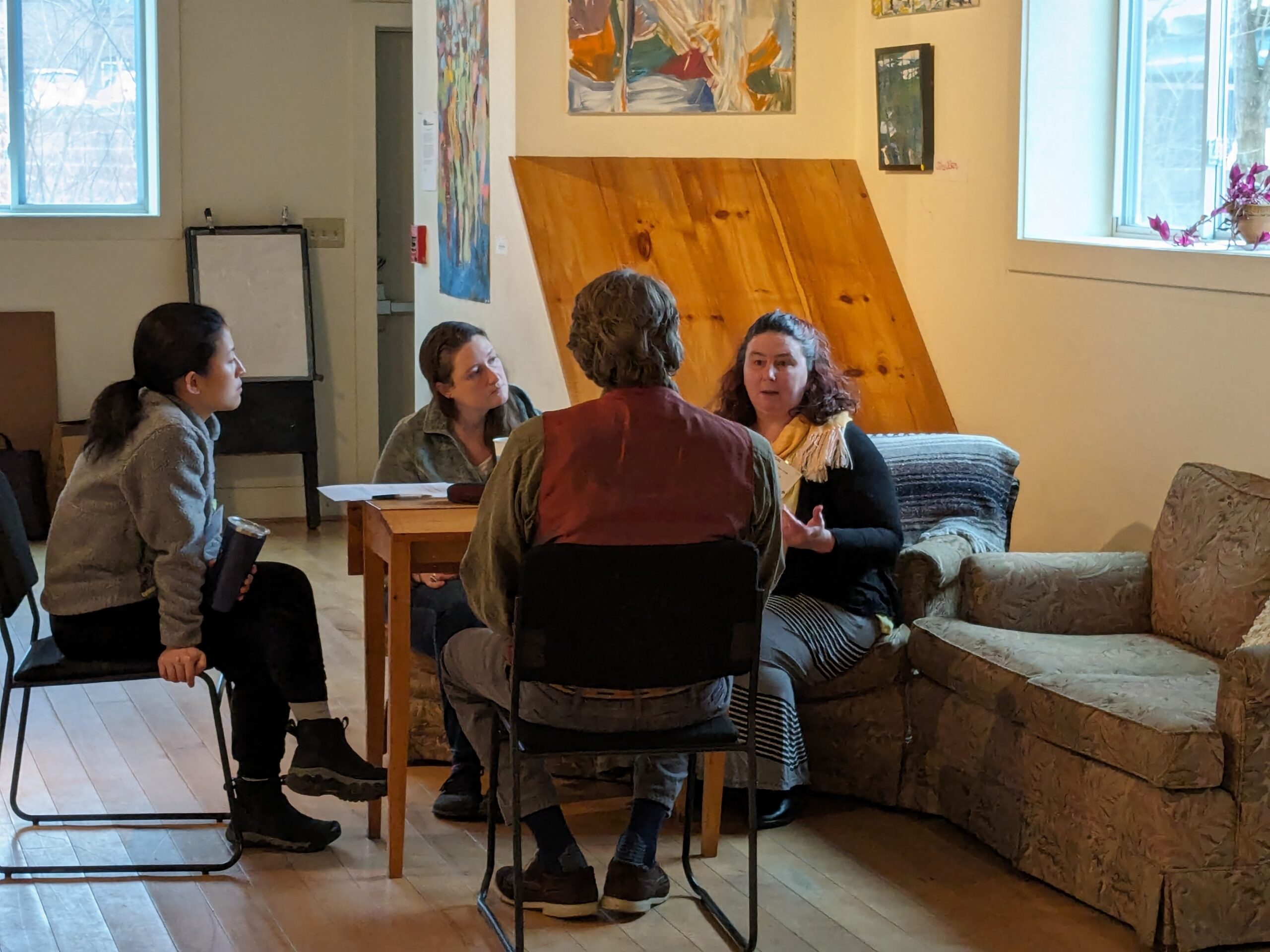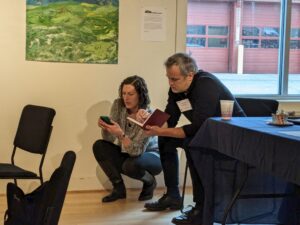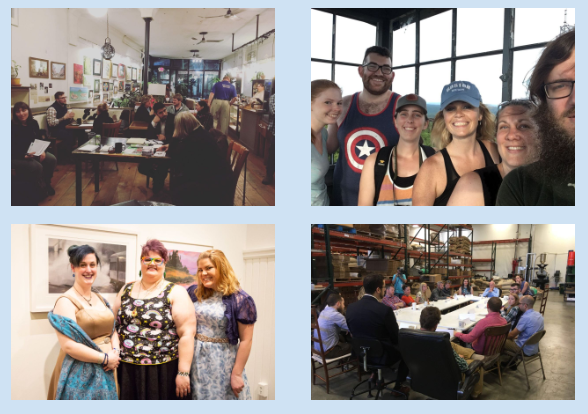
Wrapping up the SoVT Get on Board Program: “We don’t have to do this work alone!”
“Anyone can join a board!”
“There are a lot of engaged people, we just need to figure out where to put them.”
“This class helped me learn that we can connect, we don’t have to do this work alone!”
Those are just a few takeaways the members of the inaugural SoVT Get on Board Program shared following the last in-person meeting of the cohort on January 6th.
This four month program has given participants the chance to learn about local leadership in many forms: hearing from local leaders, learning about how local government works in Vermont, and learning about best practices for non-profit boards and community-led projects. In the final formal session of the course, participants wrapped up the program with time to set personal goals, solidify the important connections they had made with other local leaders, and think about ways they could bring ideas back to their community.
The goal-setting was led by Kerry Secrest of Watershed Coaching. While highlighting the need for buy-in and external support in order to achieve a stated goal, Secrest also stressed the importance of such a goal being more than 50% achievable by the goal setter alone – meaning they avoided setting goals for things that were out of their control (this is especially important for everyone to remember when setting goals for community leadership!)
Each participant also built in accountability with another class member by scheduling a future check-in to track their progress.

Attendees Beth Sturgeon and Lars Hasselbad Torres get out their calendars to plan a check-in.
Some of the goals included: creating a voter guide to Town Meeting for one participant’s town; another planned to identify one or more specific board opportunities based on the many needs in her town; another planned to evaluate if the invitation to help a local board with improving their financial processes was the right opportunity. Class members will continue to check in with each other on these goals over the next two months.
After the goal-setting workshop, the group broke out around several discussion topics relating to inclusion in local government in Vermont: Is leadership representative? Is volunteerism sustainable? Is participation welcome?
After relating the topic to their own community, the groups suggested solutions and actions that they could ‘bring home’ with them.
As always throughout the class, attendees asked excellent questions: “Does having an all- volunteer government create gaps, and is that why we have so many community non-profit organizations to fill in those gaps?” “Do we necessarily want a board that represents the majority in our community? What does that do to diversity?”
Now that they have had a chance to realize what serving on a board entails, participants also spent some time wondering about ways that communities might best support the leaders who do so much work for their communities.
Their suggestions included things like setting up community carpools so children of board members would have a ride home from evening activities (helping busy parents join boards!), organizing meal trains so boards know dinner is taken care of on meeting nights (who doesn’t love a casserole?), giving board members priority snow plow service (what Vermonter wouldn’t love that benefit?), or providing local CSA shares for Select Board members (win-win supporting local farmers).
While some of those might seem light-hearted, the valid sentiment put forward by this group was that communities can and should find ways to help those who serve our communities participate more joyfully, and feel thanked and supported by their fellow townspeople. Even if you don’t want to run for Select Board, there might be another (volunteer) way for you to support that valuable work!
While the class has concluded, the Southern VT Economy Project plans to continue to support SoVT Get on Board participants as needed, finding resources and making community connections, as well as having occasional group check-ins. We look forward to hearing about their continued journey.
We couldn’t agree more with what one class member wrote on the board of takeaways: ‘The cohort that this program brought together is awesome! (I’m) so inspired!’
About the Southern Vermont Economy Project (SVEP):
The Brattleboro Development Credit Corporation’s Southern Vermont Economy Project provides training and technical assistance to increase local capacity, skills, and resources in order to advance local projects critical to Southern Vermont achieving community, economic, and workforce development goals. SVEP is funded through the USDA Rural Community VDevelopment Initiative. For more information please visit: https://brattleborodevelopment.com/svep/



